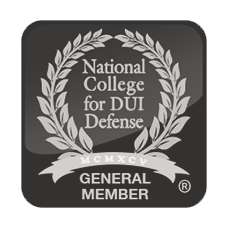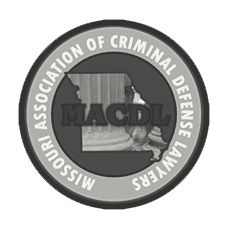The U.S. government brings charges against individuals or corporations who defraud money or other personal property for their benefit. “Defrauding” or stealing property entrusted to you is known as embezzlement.
If you or a loved one are facing a government investigation for embezzlement, JCS Law can help. We fight federal charges in Missouri and have the experience you need when facing serious charges. Call our skilled St. Louis federal criminal defense lawyer today at (314) 561-9690 to schedule a free consultation to discuss the details of your case.

What does it mean to embezzle money?
Embezzlement means to take or use items under your control for anything other than their intended use. For example, if you are a company treasurer or financial officer and siphon off funds to your personal accounts, you can be charged with embezzlement.
Common crimes associated with embezzlement include creating phony bills and receipts for expenses and then paying that money to a personal account. It can also arise from falsifying or destroying records.
What are the charges for embezzlement?
Embezzlement is considered a white-collar crime, but it is treated much the same as ordinary theft. Under Missouri Code 570.030, the penalties for embezzlement are related to the value of the assets that were taken. Lesser amounts warrant a misdemeanor, while higher amounts are charged as felonies.
For nearly all cases, the penalties include time in jail or prison, as well as substantial fines. Cited in the Missouri State Senate Bills NOS. 69 & 458, (page 6 and page 7):
$500 or less
Charged as a Class A misdemeanor, this carries a maximum of one year in county jail and a $2,000 fine.
Between $500 to $25,000
Filed as a Class C felony, you could face up to seven years in state prison and pay a $10,000 fine.
Over $25,000
This Class B felony carries a maximum of 15 years in state prison with fines up to $20,000.
These apply as long as the property or money taken was within the state of Missouri. If the charges involve federal property, then you could be at risk of facing federal embezzlement allegations in addition to the state charges.
How can a St. Louis embezzlement attorney help me?
Federal investigations are detailed and usually heavy in evidence. All of the discovery or evidence against you must be reviewed in detail. U.S. Attorneys are aggressive and will pursue as many charges as possible against you. We can help ensure you aren’t being overcharged or bullied into a plea.
Attorney John Schleiffarth can provide the bold and aggressive defense you need when facing these serious charges. The team with JCS Law will skillfully attack your case at each step while communicating and being reachable, allowing you to rest assured your case is a top priority.
We have access to the top industry experts in forensic accounting and computer forensics that can be critical in your defense. Our team understands the tactics and technology federal law enforcement uses, allowing us to determine strengths and weaknesses in your case quickly.
How much evidence is needed to prosecute embezzlement?
The amount of evidence is not as critical as the type of evidence. Naturally, the prosecuting attorney will work to gather as much documentation as possible. However, it must demonstrate three essential elements to be used against you.
1. Fiduciary relationship
The state must prove the plaintiff trusted you to handle the money or property on their behalf. This relationship could have been between a financial manager and a client. If you simply handled money for the plaintiff, there is no clear fiduciary relationship.
2. Property transfer
If you only managed or had access to the funds or property, that is not enough to establish this element. The property must have been demonstrably transferred out of the claimant’s control and into yours for your personal use.
3. Intent to embezzle
The prosecution must prove that your actions were on purpose with the intent of depriving the plaintiff of their property or funds. If you made a mistake or were tricked into using the assets for anything other than their intended purpose, this element cannot be proved.
Your St. Louis embezzlement attorney can file motions before your case to have irrelevant or damaging evidence thrown out. They will make every effort to have your charges reduced or dismissed before going to court.
Possible defenses to an embezzlement charge
It is important to predict what the prosecutor will do in your case. Your St. Louis embezzlement attorney can discuss the evidence involved, how to prove embezzlement, and how they plan to fight back against the charges. They may include various defense strategies, such as the following.
Duress
If you were threatened with harm or losing your job if you did not embezzle funds, you could claim you were under duress.
Entrapment
Entrapment involves authorities luring or compelling you to commit a crime you would not commit otherwise. You and your attorney can present evidence that you are the victim of entrapment if undercover officers set up financial bait to get you to embezzle.

Insufficient evidence
The amount and quality of evidence must be substantial enough to prove you had a fiduciary relationship, you intended to embezzle, and the property was transferred for your use. If the prosecutor cannot show beyond a reasonable doubt that you are guilty, your charges can be dismissed due to lack of evidence.
Lack of intent
Intent is one of the most challenging elements to demonstrate in court. The prosecutor must have clear and convincing evidence that you intended to commit fraud and embezzlement. Your attorney can argue that you truly thought you were the actual owner of the property in question and did not realize you were embezzling it.
Mental incapacity
If you are on prescription medications that affect your judgment, you could argue that you were temporarily mentally incapacitated when the embezzlement occurred. You could demonstrate that you were not aware of your actions and did not have intent to commit the crime.
At JCS Law, we work tirelessly from the moment you hire us to secure the best outcome possible for your specific circumstances. Our team is committed to protecting your rights, as well as your freedom and future.
Why you can trust JCS Law as your embezzlement attorney in St. Louis
At JCS Law, we believe in offering our criminal defense clients three essential qualities for high-quality legal representation: diligence, experience, and skill. We know the government has a high burden of proof, and we are trained to fight aggressively against their attempts to meet that burden.
You are not just another case to us. Our attorneys care about you and the success of your defense. When you or a loved one needs the skills of a reputable St. Louis embezzlement attorney, call us at (314) 561-9690 or use our online form to schedule a free consultation. We are ready to listen to your case and get started building your defense.
Commonly asked questions about embezzlement
Is using a company credit card for personal use embezzlement?
While it is not technically illegal to use a company credit card for personal expenses, whether it is considered embezzlement depends on the details of the situation. For example, if an employee uses the card for a personal expense but pays the cost back from their own funds, it is not embezzlement.
If they misuse the card to pay their bills or to make purchases strictly for their personal use, they may be committing fraud and embezzlement. If they falsely file the purchases as company expenses or fail to repay the costs, that could be used to demonstrate intent to embezzle.
Are you required to pay back embezzled funds?
If you are convicted of embezzlement, you will be required to pay fines to the court and also repay any embezzled funds. In most cases, you will also have to pay interest on the money to compensate for the claimant’s loss of its use.
If you do not have the means to repay the funds, the judge will likely order a payment plan as part of your sentencing so you can make the plaintiff whole.
Can embezzlement involve the theft of property?
Although most charges involve the misappropriation of money, embezzlement can involve the misuse or transfer of property. This might include real estate, cars, jewelry, clothing, stock certificates, bonds, artwork, or office equipment.
If you transfer these items into your name, that is embezzlement. Improper transfer could also qualify for charges. Suppose you sell the items using your access and control duties without appropriate consent from the owners and then pocket the money for yourself. This would likely be considered embezzlement.
How is embezzlement different from theft?
Theft, or larceny, involves taking property or money the defendant had no right to access. Stealing a vehicle from the street or a garage would be considered theft because there was no right of ownership or control.
Embezzlement is the transfer or taking of property over which you have been granted control or use for your personal use, as opposed to the property’s original purpose.
Featured In:






Award winning
law firm
120 S Central Ave #1550
St. Louis MO 63105









